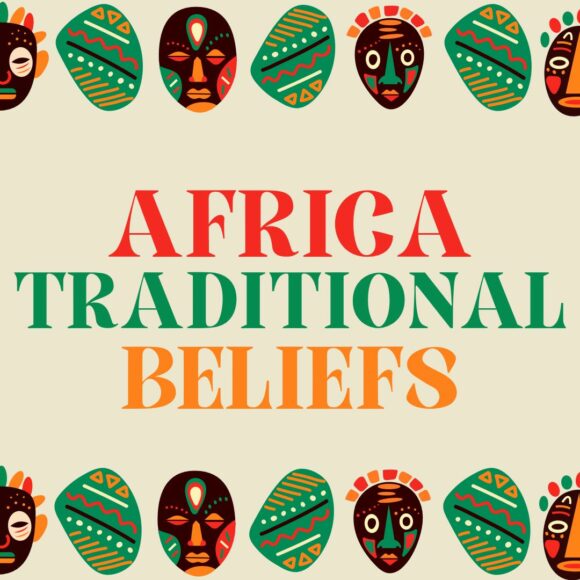
by Antonio Napoli
Not always do the names of cities survive the kingdoms that govern them or the languages spoken within them. When the walls collapse, struck down by the wind of war, and the streets dissolve into dust, condemned to be nothing but themselves, all that remains of their greatness is the trace of a bonfire.
“Speusippo,” I said, as the camel lowered its head beneath an arch, crossing one of the city gates, anonymous to our eyes thirsting for new things. “Pass me the water, please.”
The Greek flinched. “How do you know my name? I’ve spoken so much about myself, but never revealed it to you. Just as I don’t know yours.”
“You don’t remember saying it, that’s all,” I replied, savoring the bittersweet taste of my first lie to my new friend. The powers granted by the book of memory were becoming an increasingly difficult secret to keep, and my impulsive nature only made things more complicated.
“Call me Zebo,” I said, careful not to muddy my voice in the mire of falsehood. (Although it’s not my real name, I will go by this for the entire story, because when memories fade— not today, not tomorrow, maybe the day after— every distinction between true name and false name collapses into nothing.)
Speusippo looked at me suspiciously once more, then handed me the corked glass water bottle, the one we had found dangling from the camel’s saddle and which I had filled to the brim before leaving the oasis.
“Don’t drink it all,” he warned. “It might serve us as barter in this city.”
“And you’re not thirsty?” I asked. “But in the end, this city will never leave us with a dry throat.”
Speusippo didn’t have time to respond because suddenly a boy clung to the camel’s leg, sobbing with such desperation that the animal, perhaps moved, lowered itself to lick his head in a silent gesture of consolation.
“Jabir, get off!” I snapped, irritated.
The boy and the Greek exchanged a surprised glance.
“Damn me!” I thought, increasingly embarrassed by the involuntary nature of certain memories.
“Jabir, Jabir, get off!” echoed a voice from down the street.
I turned. An old man was approaching us: bent, scruffy, with small but fiery eyes, like embers breathing. And in that moment, as I dismounted the camel to lift the child as one lifts a young goat, something stirred in my heart: the numbed resemblance between ancestors and descendants that lies in the blood, dormant, waiting for a sign.
Jabir surrendered to my grip, docile and still crying. “I’m looking for my mother,” he murmured. “The thieves took her.”
I looked at him and, without hesitation, indeed without a merciful restraint, I spoke. “The woman who was taken isn’t your mother.”
My words struck him like the stinger of a riddle that wounds the heart more than the mind. In his eyes opened a painful, incredulous void.
Not long before, with the vision of my mind, I had seen a two-year-old child thrown into a basket from one riverbank to the other—so narrow at that point that it seemed the lips of a half-open mouth. And I had heard, with the ears of memory, a very young woman shout to another of the same age: “Take care of my child.” In the deep caves of the child’s memory, there was no other image of that mother, who was meeting her fate, parting from her son, and perhaps from life itself.
Speusippo shook his head, aggravated. “What are you saying? Is this how you comfort an orphan?” he reproached me. Yet he didn’t notice that with his last word, he had already decreed the death of one of the two: the adoptive mother or the real mother.
“I saw the thieves drag my mother away myself,” Jabir said through his tears. Then he wiped his eyes and looked at me, lost, like one who had to believe in a truth just as painful.
It was then that the old man tore him from my arms, and I couldn’t help but notice that his gaze was astonished, intimidated, or perhaps complicit with my own eyes, ignited by the effluence of memories that came to me from the contact with both. Still shaken by the echo of the mother’s voice, I grabbed the old man’s forearm, fearing that he might take something from me that didn’t belong to my heart, but to an emotional memory that was not mine. Then, however, I let go, seeing a grimace of pain on the old man’s face.
A little further on, two guards were stabbing a rabid dog with spears. Alarmed by the boy’s cries, they had approached. The guards interrogated us, me and the Greek, with such distrust that the tips of their spears seemed to speak in place of their mouths. They were looking for traces of the thieves, who had looted other neighborhoods of the city.
It was then that the boy, overwhelmed by a sudden fear, pointed his finger at the camel’s head, but the old man grabbed him, covering his mouth, and said it was time to go home. “Strangers, the inns are all full,” he added. “Come to my house, I have shelter for the hungry camel and for your weary bodies in need of rest.”
“And a wash,” I added, laughing. Meanwhile, the guards had moved away to push the now-dead dog with their spears toward a live fire that illuminated a crowd of frightened men.
The old man’s house was neither lavish nor shabby. The stable was empty, and the strange thing was that the camel went to lie down there as if in a familiar place. The Greek cleaned himself up and, with his trimmed beard, looked like a different person. We replenished ourselves.
“You are not brigands,” said our host. “But only one camel bears that mark on its forehead, and it is the camel of the man who was once welcome in this house, and then no longer, for his wicked life. So, I want to ask you: where did you find it?”
The Greek explained what had happened, and I refrained from adding the rich details that, thanks to the powers of the book, I could have revealed. I was silent about the fact that the man had kidnapped the old man’s daughter, silent about the fact that his corpse lay in the desert with some scraps of flesh still attached, silent about the anguished cry that marked the girl’s disappearance: I knew no more, nor did I want to know. I intervened only to ask the host, after he had taken the sleeping boy away, to uncover the left forearm.
At first, the man was reluctant, but then he submitted and bared the arm.
“The rabid dog bit you, didn’t it?” I declared.
“Either you’re perceptive, or you’re a fortune-teller,” said the old man.
“You know that death awaits you,” I affirmed. “Does the boy live alone with you?”
“Yes. How can I hide my double despair, for my daughter and my grandson?”
The Greek stepped away and returned shortly with the water bottle in hand.
“We’ll pour a few drops of this water on the wound and nothing will happen to you of what is written in the stars,” he said, and did so.
I don’t know if one can change the course of fate. But the fact is, we saw the old man’s skin at the site of the dog bite, in contact with the oasis water, froth and then calm, turning yellow and whole, with no more lacerations.
“Your blood no longer carries the poison,” Speusippo pronounced, and the Greek’s voice, or perhaps his own hope, convinced the old man that he would survive a poison that caused in men the same aggressive madness and the same fatal suffering that struck the animal.
It was late at night. Between the Greek and me, I was the more tired. Before we parted ways, I asked about the boy’s father, because in that house nothing echoed any memory of him.
The old man replied that he had died in battle. I had an unpleasant feeling.
We withdrew to the common room, and I sank into a sleep as closed as a sarcophagus. Just before dawn, I woke up and saw Speusippo staring at me with the book of memory in his hand.
“Did you read it?” I asked, more frightened than angry.
The Greek nodded. “That’s why you knew our names: mine, the boy’s… and many other details. If we are to be friends, remember that I must be able to trust your intentions.”
“Now you can read my memories too,” I replied.
“No, my trust must not be suggested to me by a magical memory,” the Greek pointed out, revealing a characteristic of his people: morality.
Speusippo stood up to touch a woman’s tunic, resting on the back of a chair. Then he said with confidence: “The woman is still alive. We must go find her.”
“Speusippo, the book does not reveal the future, but only the past,” I protested.
“The book doesn’t, but dreams do.”
“And what about our mission to find the river of oblivion? The book speaks of a river that purifies from the temptation to remember pleasures, but also past pains. It’s another proof of its existence.”
“Yes, I know,” replied the Greek. “But I don’t want to live with the unease of not having done everything possible to help this woman return home,” he concluded.
At that moment, the evening guards entered the room. They were there to arrest us. They took us away with names that were not ours, with accusations that didn’t concern our past actions, under the eyes of the reckless ingratitude of the old man.
Outside, the camel, at our passing, stopped eating and looked at us, with a sorrow reflected in its eyes.
One thought on “The book of Memory: Chapter 2”
Comments are closed.

The plot is getting really exciting!
The characters have such beautiful names!